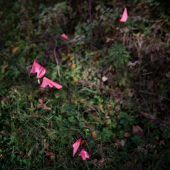
The Flint water crisis, considered one of the worst public health crises of our time, continues to have devastating and irreversible impacts for residents six years in the making, from 2014 to present. The understanding and awareness of this public health crisis is vital in order to comprehend the impacts of poor urban management and the human right to clean water in the nation’s marginalized and poor communities. This article will document the context of the Flint water crisis and the Dakota Access Pipeline using photography as an immersive storytelling medium to humanize the issue. Additional stories, including those of Indigenous youth water activist Autumn Peltier and Flint youth activist Mari Copeny, document innovative ways in which we can contribute to a more informed society. Educators provide various ways to integrate the themes of environmental justice, water accessibility, sustainability, and climate change across multiple subject areas.
Continue Reading
Abstract: As native Midwestern prairie and savannah landscapes continue to be destroyed, some environmentalists are working to reconstruct the prairie and savanna ecosystems that greeted European settlers a century and a half ago. This series of photographs engages those reconstructed landscapes and considers the fundamental question of what we consider natural. As many of these sites are used for educational and scientific purposes, this series also engages how the arts can contribute to our understanding of place.
Continue Reading